
November 24
1859 Origin of Species is published:
On the Origin of Species by Means of Natural Selection, a groundbreaking scientific work by British naturalist Charles Darwin, is published in England. Darwin's theory argued that organisms gradually evolve through a process he called "natural selection." In natural selection, organisms with genetic variations that suit their environment tend to propagate more descendants than organisms of the same species that lack the variation, thus influencing the overall genetic makeup of the species. [For further information, click here]
1889 Birth: Kurt Freiherr von Schroeder: Banker, president of Cologne Chamber of Industry and Commerce. Will arrange the meeting between Hitler and Papen that will lead to Schleicher's ouster. SS honorary brigadier general.
1891 Birth: Max Amann: Adolf Hitler's World War I company sergeant and one of his closest comrades during and after the First World War. Hitler even wrote to him while away on leave. Amann will join the NSDAP in 1921 and later that same year will become the Party's first business manager. He will become publications manager of the Franz Eher Publishing House, the Party publishing house, in 1922. After November 1933, Amann will serve as President of the Reich Press Chamber and will be largely responsible for developing the Party's giant newspaper trust by plundering non-Nazi newspaper chains, gradually eliminating all independent publishing. Amann will be sentenced to two and one-half years in prison by a Munich court on September 8, 1948, and two months later the Central-de-Nazification Court will impose ten years' labor camp on him as a "Major Offender." His property and holdings will be expropriated in 1949 and in 1963 he will die in poverty in Munich.
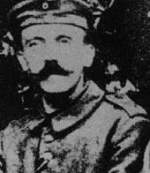
1914 World War I: Gefreiter Adolf Hitler sees action at Ypres as a Dispatch Runner with Regimental HQ, 16 Bavarian Infantry Regiment.
1918 World War I: Yugoslavia: Address from the Yugoslav National Council to the Regent of Serbia:
The National Council desires that a national representation should be established by agreement with the National Council and the popular representatives of the Kingdom of Serbia, and that the Government should be made responsible, according to modern parliamentary principles, to this representation, which would sit in permanence until the Constituent. For the same reasons the former administrative and autonomous institutions would remain in vigour. In this period of transition it is in our opinion necessary to create the conditions for a definite organization of one unitary State. With this end in view, the Government should prepare the Constituent, which, according to the proposal of the National Council, would be elected on the basis of secret, universal, and proportional suffrage, and convoked at latest six months after the conclusion of peace.
1922 Irish author and nationalist executed:
Robert Erskine Childers, a popular Irish author and member of the Irish Republican Army (IRA), is shot to death by an Irish Free State firing squad after being convicted of carrying a revolver. He had been one of the leaders, along with Eamon de Valera, of the Republican forces in the Irish Civil War that followed the partition of Ireland in 1921.
Childers, born in London in 1870, fought for Britain in the Boer War in South Africa before writing The Riddle of the Sands (1903), a popular novel that is considered one of literature's first spy stories. He later resigned from the British army to devote himself to the struggle for Irish Home Rule and in 1914 secretly used his yacht to smuggle arms to the Irish rebels. During World War I, Childers served England as an intelligence and aerial-reconnaissance officer and received a Distinguished Service Cross for his bravery.
After the war, he traveled to Ireland, where he was elected to the Dáil Éireann (Irish Assembly). After the partition of Ireland, he joined the IRA to continue the struggle for complete Irish independence. Caught by Free French Forces, he was court-martialed and executed in Dublin on charges of illegally possessing a handgun.
His son, Erskine Hamilton Childers, was elected president of Ireland in 1973. (History.com)
1933 Various:
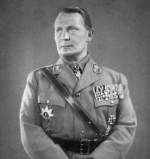
A law for the protection of animals is passed by the Hitler's Reich under Hermann Goering's leadership. This law explicitly states that it is designed to prevent cruelty and indifference of man towards animals and to awaken and develop sympathy and understanding for animals as one of the highest moral values of a people. The soul of the German people should abhor the principle of mere utility without consideration of the moral aspects. The law further states that all operations or treatments which are associated with pain or injury, especially experiments involving the use of cold, heat, or infection, are prohibited, and can be permitted only under special exceptional circumstances. Special written authorization by the head of the department is necessary in every case, and experimenters are prohibited from performing experiments according to their own free judgment. Experiments for the purpose of teaching must be reduced to a minimum. Medico-legal tests, vaccinations, withdrawal of blood for diagnostic purposes, and trial of vaccines prepared according to well-established scientific principles are permitted, but the animals have to be killed immediately and painlessly after such experiments. Individual physicians are not permitted to use dogs to increase their surgical skill by such practices. National Socialism, the law says, regards it as a sacred duty of German science to keep the number of painful animal experiments to a minimum.
Antisemitism: Jewish students are beaten and harassed at a number of Hungarian universities.
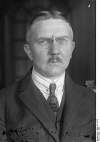
1937 Hjalmar Schacht, after a bitter argument with Hitler, is removed as German minister of the economy and is replaced by Walter Funk. Schacht remains president of the Reichsbank.
1938 Various:

Holocaust: The Danzig Senate introduces legislation resembling the Nuremberg Laws for Jews still living in the Nazi-dominated "Free City."
Holocaust: Das Schwarze Korps, an SS periodical, claims that it would welcome the founding of a Jewish state.
The German people are not in the least inclined to tolerate in their country hundreds of thousands of criminals, who not only secure their existence through crime, but also want to exact revenge . . . . In such a situation we would be faced with the hard necessity of exterminating the Jewish underworld . . . . The result would be the actual and final end of Jewry in Germany, its absolute annihilation.
1940 World War II: Slovakia: a German puppet state under Prime Minister Tuka joins the Tripartite Pact powers (Italy, Germany, Japan and other lesser powers) in a meeting in Berlin. Antonescu departs Berlin.
1941 Various:
Countdown to Infamy: Chief of Naval Operations to Commander in Chief Pacific Fleet:
There are very doubtful chances of a favorable outcome of negotiations with Japan. This situation coupled with statements of Nippon Government and movements of their navel and military forces indicate in our opinion that a surprise aggressive movement in any direction including an attack on the Philippines or Guam is a possibility. The Chief of Staff has seen this dispatch and concurs . . . . Utmost secrecy is necessary in order not to complicate an already tense situation or precipitate Jap action.
Holocaust: Theresienstadt, the largest of the new concentration camps in what had been Czechoslovakia, is established.
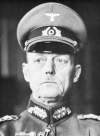
Eastern Front: Rostov is evacuated of German units in the face of again being cut off in their rear. Field Mashall Rundstedt makes this move in the face of express orders from Hitler to stand fast.
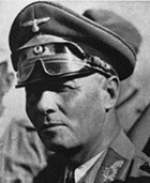
North Africa: Rommel, believing the opposing British Armor destroyed, ignores the New Zealand forces in the area and advances along the Trig el Abd to the Egyptian border. During the "Dash to the Wire" Rommel and his senior commanders lose touch, and the British rear echelons panic. The Germans take losses they can't afford though and their hold on the British armor becomes slack.
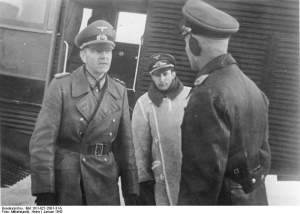
1942 Stalingrad: Goering declares that he can keep Paulus supplied by air. Paulus estimates that he requires 750 tons day. The Luftwaffe, however, simply does not correctly estimate the number of transport aircraft needed to maintain this, and only one of the seven airstrips an Stalingrad has a night landing capability. Goering's boast is therefore totally unrealistic. Nevertheless this decides Hitler that Paulus must remain where he is rather than break out to the west.
1943 World War II: Various:

President Roosevelt, en route to the Tehran Conference in Iran, stops off at Cairo for a four-day conference with Chiang Kai-shek and Churchill. Churchill is said to have been surprised that Roosevelt treated China as if it had the full status of a great power.
Eastern Front: German attacks at Korosten increase, forcing the Soviets to fall back.
1944 Various:
World War II: France: Troops of the French First Army (de Tassigny) capture Muehlhausen in Alsace, while the French 2nd Division completes the capture of Strasbourg. Units from Patton's US 3rd Army cross the Saar 25 miles north of Saarbrucken.
Baltic: In the Gulf of Riga the last 5,000 German troops are evacuated off the Island of Saaremo, covered by the German ships Lutzow, Admiral Scheer, and Prinz Eugen.
U.S. B-29s raid Tokyo:
On this day in 1944, 111 U.S. B-29 Superfortress bombers raid Tokyo for the first time since Capt. Jimmy Doolittle's raid in 1942. Their target: the Nakajima aircraft engine works.
Fall 1944 saw the sustained strategic bombing of Japan. It began with a reconnaissance flight over Tokyo by Tokyo Rose, a Superfortress B-29 bomber piloted by Capt. Ralph D. Steakley, who grabbed over 700 photographs of the bomb sites in 35 minutes. Next, starting the first week of November, came a string of B-29 raids, dropping hundreds of tons of high explosives on Iwo Jima, in order to keep the Japanese fighters stationed there on the ground and useless for a counteroffensive. Then came Tokyo.
The awesome raid, composed of 111 Superfortress four-engine bombers, was led by Gen. Emmett "Rosie" O'Donnell, piloting Dauntless Dotty. Press cameramen on site captured the takeoffs of the first mass raid on the Japanese capital ever for posterity. Unfortunately, even with the use of radar, overcast skies and bad weather proved an insurmountable obstacle at 30,000 feet: Despite the barrage of bombs that were dropped, fewer than 50 hit the main target, the Nakajima Aircraft Works, doing little damage. The upside was that at such a great height, the B-29s were protected from counter-attack; only one was shot down.
One Distinguished Flying Cross was awarded as a result of the raid. It went to Captain Steakley. (History.com)
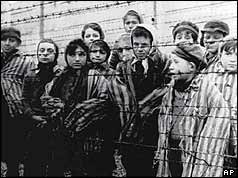
Holocaust: Himmler issues orders to close the remaining crematorium at Auschwitz, and gives instruction to destroy any remaining evidence.
1947 Red Scare: A group of writers, producers and directors that became known as the "Hollywood 10" is cited for contempt of Congress for refusing to answer questions about alleged Communist influence in the movie industry. (AP)
1963 Vietnam: LBJ to continue Kennedy policy:
Two days after the assassination of John F. Kennedy, President Lyndon B. Johnson confirms the U.S. intention to continue military and economic support to South Vietnam. He instructed Ambassador Henry Cabot Lodge, in Washington for consultations following South Vietnamese President Ngo Dinh Diem's assassination, to communicate his intention to the new South Vietnamese leadership. Johnson's first decision about Vietnam was effectively to continue Kennedy's policy. (History.com)
1987 Nuclear weapons: The United States and the Soviet Union agree to scrap shorter- and medium-range missiles in the first superpower treaty to eliminate an entire class of nuclear weapons. (AP)
1989 Czechoslovakia: Hard-line party leadership resigns after more than a week of protests against its policies. (AP)
Edited by Levi Bookin (Copy editor)
levi.bookin@gmail.com
FAIR USE NOTICE: This site may contain copyrighted material the use of which has not always been specifically authorized by the copyright owner. We are making such material available in our efforts to advance understanding of historical, political, human rights, economic, democracy, scientific, environmental, and social justice issues, etc. We believe this constitutes a 'fair use' of any such copyrighted material as provided for in section 107 of the US Copyright Law. In accordance with Title 17 U.S.C. Section 107, the material on this site is distributed without profit to those who have expressed a prior interest in receiving the included information for research and educational purposes. If you wish to use copyrighted material from this site for purposes of your own that go beyond 'fair use', you must obtain permission from the copyright owner. Please note that the list-owner and the moderator are not responsible for, and do not necessarily approve of, the random ads placed on our pages by our web server. They are, unfortunately, the price one pays for a 'free' website.


